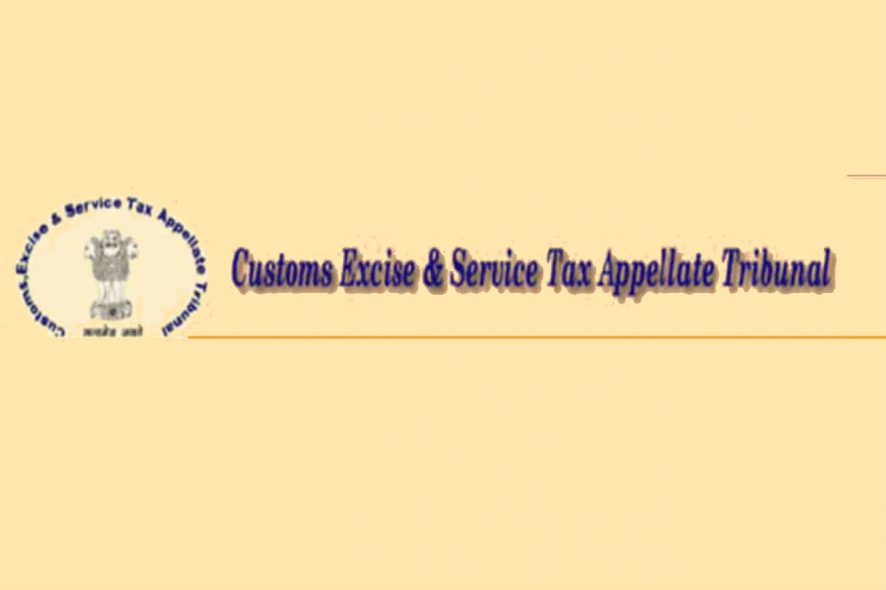Customs, Excise and Services Tax Appellate Tribunal (CESTAT): Anil Choudhary (Judicial Member), allowed an appeal which was filed aggrieved by the judgment and order given by Commissioner (Appeals). The issue before the Tribunal was whether the demand of interest was to be calculated from the date of clearance of goods upto the date of actual payment of duty or from the date of determination of due amount till the actual date of payment of duty.
Appellant was engaged in the manufacture of chewing tobacco falling under Chapter 24 of the CETA and the goods being notified under Section 3 A of the Central Excise Act, the appellant was working under Chewing Tobacco and Unmanufactured Tobacco Packing Machines (Capacity Determination and Collection of Duty Rules) 2010 (CTPM Rules). Appellant valued and paid excise duty under Section 4 A of the Excise Act. The officers of Anti-Evasion visited the factory premises of the appellant and objected to the clearance of retail packages of less than 10 gms, show cause notice was issued proposing to demand differential excise duty on wholesale packages This show cause notice was adjudicated by the Dy. Commissioner confirming the proposed demand. This show cause notice was adjudicated by the Dy. Commissioner confirming the proposed demand, the first appeal before the Commissioner (Appeals) was rejected further, the appeal before this Tribunal was dismissed by the Tribunal confirming the demand. The appeal of the appellant /assessee was allowed by the Commissioner (Appeals) observing that the retail packs weighing upto 10 gms were not liable for MRP based assessment and excise duty has been rightly paid under Section 4 of Central Excise Act. Accordingly, being successful in appeal, they filed a refund claim, which was allowed. Against the Order-in-Appeal Revenue preferred an appeal before this Tribunal in favour of the appellant and against the Revenue. Pending litigation before this Tribunal, Revenue had issued 25 show cause notices for the succeeding period Meanwhile, Rule 2 (j) and Rule 17 of the Package Commodity Rules (Successive Rules to SWM Rules) were omitted from the Statute. Pending adjudication of the aforementioned 25 show-cause notices, the appellant closed down its manufacturing activities and surrendered its registration, the Additional Commissioner confirmed the demand raised under 25 show cause notices with interest and also imposed penalty equivalent to 50% of the duty confirmed.
Being aggrieved, the appellant/assessee preferred appeals before the Commissioner (Appeals) which were rejected. In order to buy peace with the Department, the appellant deposited the differential duty. Further, being aggrieved with the imposition of penalty the appellant preferred appeal before this Tribunal. This Tribunal allowed the appeal and dismissed all the appeals filed by the Revenue. During the pendency of the appeals before the Tribunal the Department directed the appellant to pay interest on differential duty, in response, the appellant objected to the manner of calculation adopted by the Department for demanding interest. The appellant against the Department’s letter being coercive in nature, filed an appeal before the Commissioner (Appeals), Central Excise & CGST, Jaipur which was rejected. Finally aggrieved by which the instant appeal was filed.
The Tribunal applied the ruling in the judgment of CCE v. Lucas TVS Ltd. – 2010 (262) ELT 444 (Tribunal-Chennai), and held that setting aside of the original order and remanding the matter for de novo consideration means, that there is no order and party is relegated to fresh adjudication and adjudication culminates into an order.
The Tribunal while allowing the appeal found that in the facts of the present case the Commissioner (Appeals) has redetermined the duty liability by his order as the demand was set aside and only re-determined for the further period. The Tribunal observed that the appellant /assessee was liable to pay interest for one month which they have admittedly paid, thus the impugned order is set aside.[Arora Products v. Commr., CE & CGST, 2020 SCC OnLine CESTAT 255, decided on 26-10-2020]
Suchita Shukla, Editorial Assistant has put this story together







